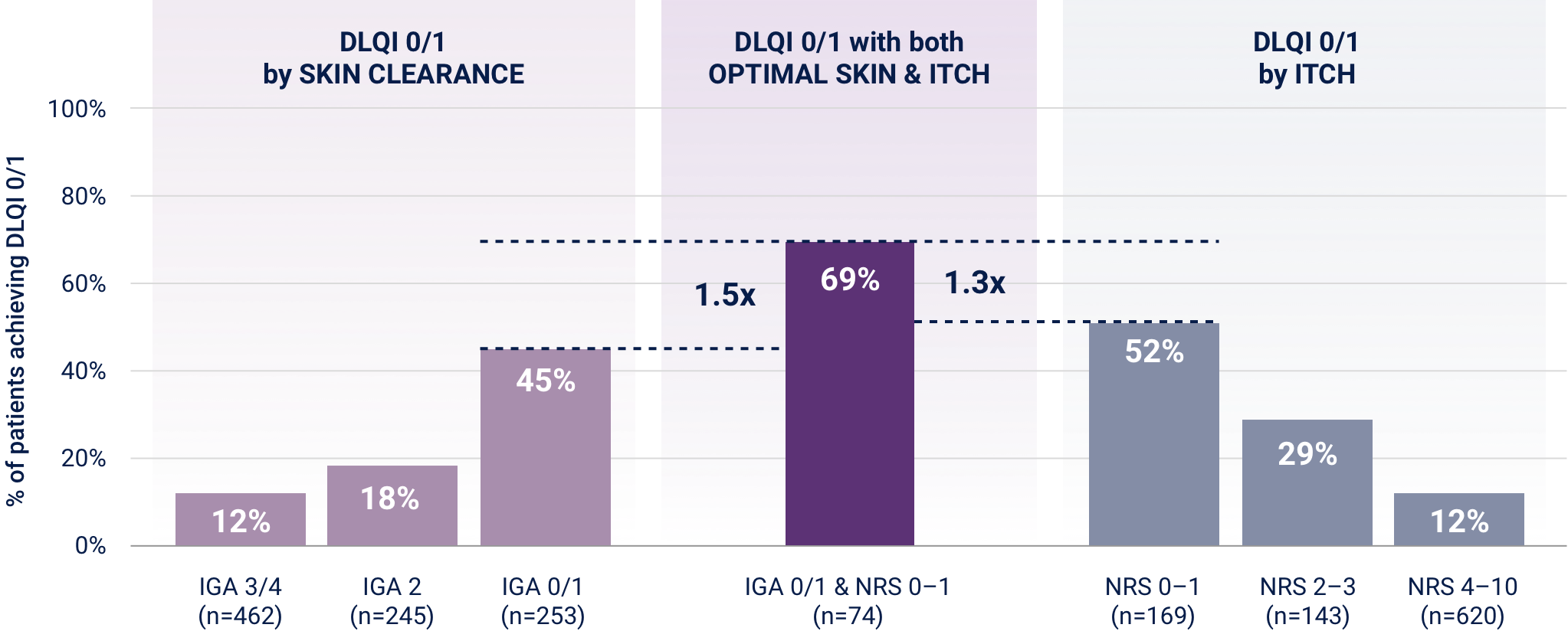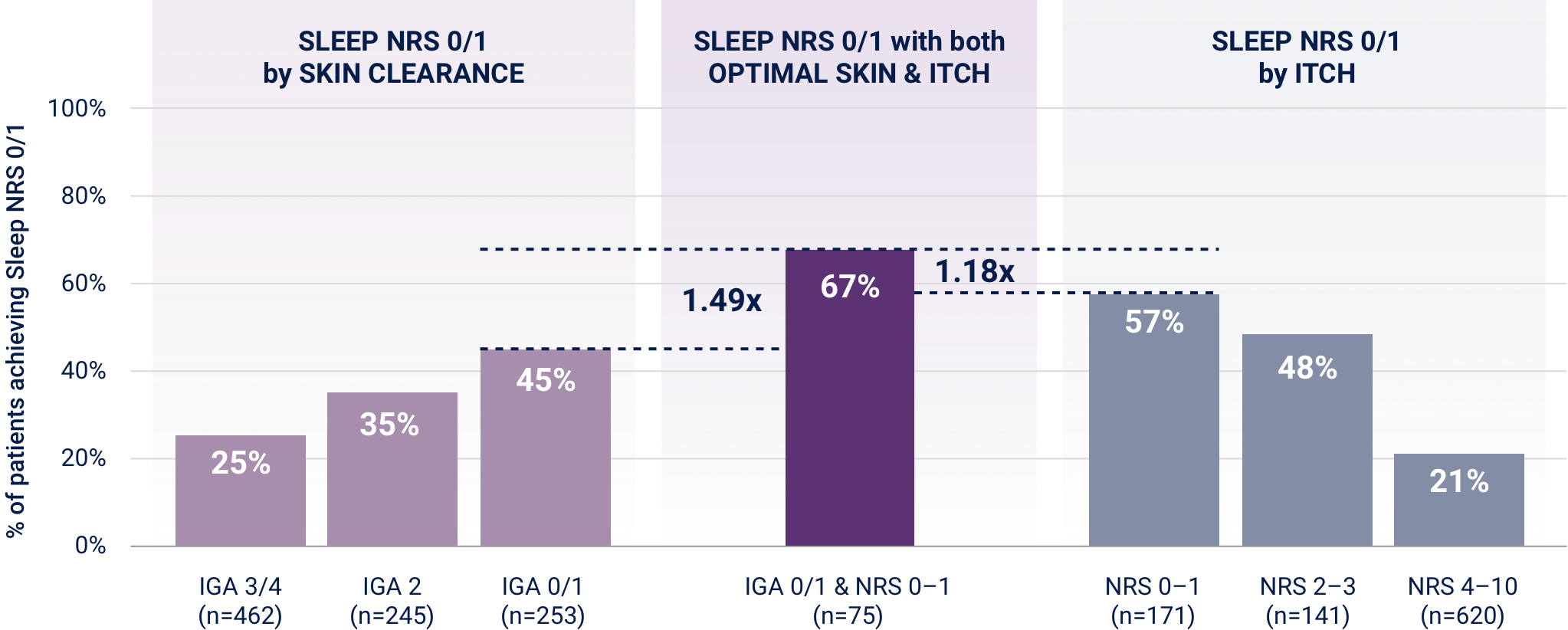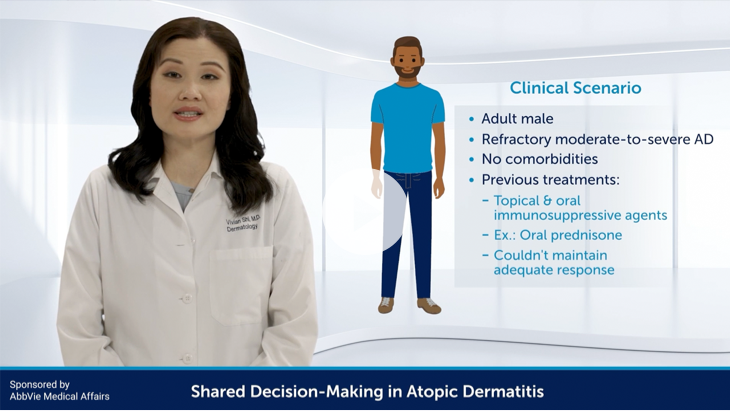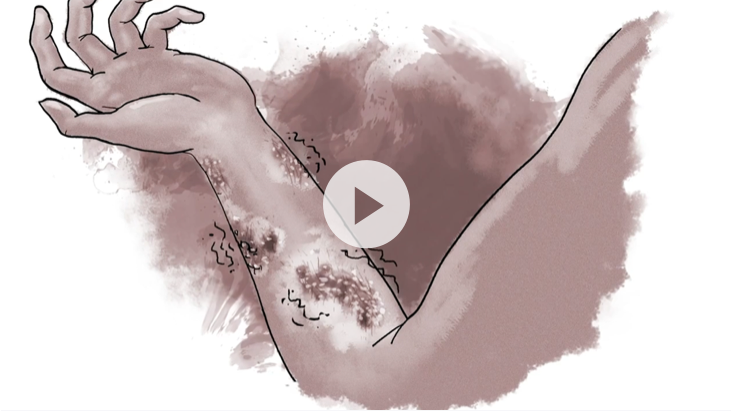Together, we can positively impact patients living with atopic dermatitis
Atopic dermatitis (AD) may often be ignored, but no one should look away from the weight that people who are suffering from this condition bear. Use these materials to learn more about atopic dermatitis and possible treatments to help your patients better control it.
Learn more about AD and its impact below:

Disease Education
The better we understand AD, the better prepared we will all be in helping patients gain control over this condition.
CONSENSUS RECOMMENDATIONS FOR OPTIMIZING AD TREATMENT
Achievement of Minimal Disease Activity (MDA) Through Shared Decision-Making1
CONSENSUS RECOMMENDATION:
Patients determine which aspects of their disease are most important or impactful
Clinician then chooses:
- ≥1 clinician-reported measure
- ≥1 patient-reported measure that reflects what is important to the patient
Achievement of BOTH clinician and patient
agreed-upon “optimal” targets is defined as MDA.
Treatment response may be considered inadequate if agreed-upon targets are not met within 3–6 months.
| Clinician-Reported Outcome Measures | Optimal Target |
|---|---|
| EASI | EASI 90 or EASI ≤3 |
| SCORAD | SCORAD 75 or SCORAD ≤10 |
| IGA and BSA | IGA 0/1 and BSA ≤2% |
| Patient-Reported Outcome Measures | Optimal Target |
|---|---|
| If itch chosen, use peak pruritus NRS | ≤1 |
| If skin appearance/condition chosen, use POEM | ≤2 |
| If sleep disturbance chosen, use sleep NRS | ≤1 |
| If mental health chosen, use HADS | HADS-A <8 and HADS-D <8 |
| If skin pain chosen, use pain NRS | ≤1 |
| If impact on daily life chosen, use DLQI (>16 yrs), CDLQI (4–16 yrs), or IDQOL (<4 yrs) | 0/1 |
DEMONSTRATING IMPACT OF ACHIEVING OPTIMAL SKIN AND ITCH TARGETS IN THE REAL-WORLD2
TARGET-DERM AD Registry: Dermatology Life Quality Index

TARGET-DERM AD Registry: Sleep-Numeric Rating Scale

Limitations: Selection bias. Loss to follow-up can impact validity, while inconsistencies or missing data may reduce reliability. Generalizability might be limited by participant or geographic characteristics.
The Sleep-Numeric Rating Scale (SLEEP-NRS) has a scale of 0 (worst possible sleep) to 10 (best possible sleep).
References: 1. Silverberg JI, Gooderham M, Katoh N, et al. Combining treat-to-target principles and shared decision-making: international expert consensus-based recommendations with a novel concept for minimal disease activity criteria in atopic dermatitis. J Eur Acad Dermatol Venereol. 2024;38(11):2139-2148. doi:10.1111/jdv.20229 2. Silverberg JI, Calimlim BM, Grada A, et al. Real-world evidence on the benefits of optimal itch relief and skin clearance in atopic dermatitis management: a study from the TARGET-DERM AD registry. J Dermatolog Treat. 2024;35(1):2428729. doi:10.1080/09546634.2024.2428729
Explore our videos below to learn more about atopic dermatitis

Closing the Gaps in Atopic Dermatitis
Atopic Dermatitis Severity of Disease
Treatment Considerations
You and your patients have many treatment options—such as phototherapy, topicals, and systemic therapies—to consider for AD. Take a look at information that may help with your treatment considerations.
Navigating Treatment Options
Patient Stories
Watch this patient story to gain a deeper understanding of how a life can be changed by AD.

Each shade of skin deserves care
Watch and learn from leading clinical experts on how we can improve dermatologic care for patients of color living with AD.






